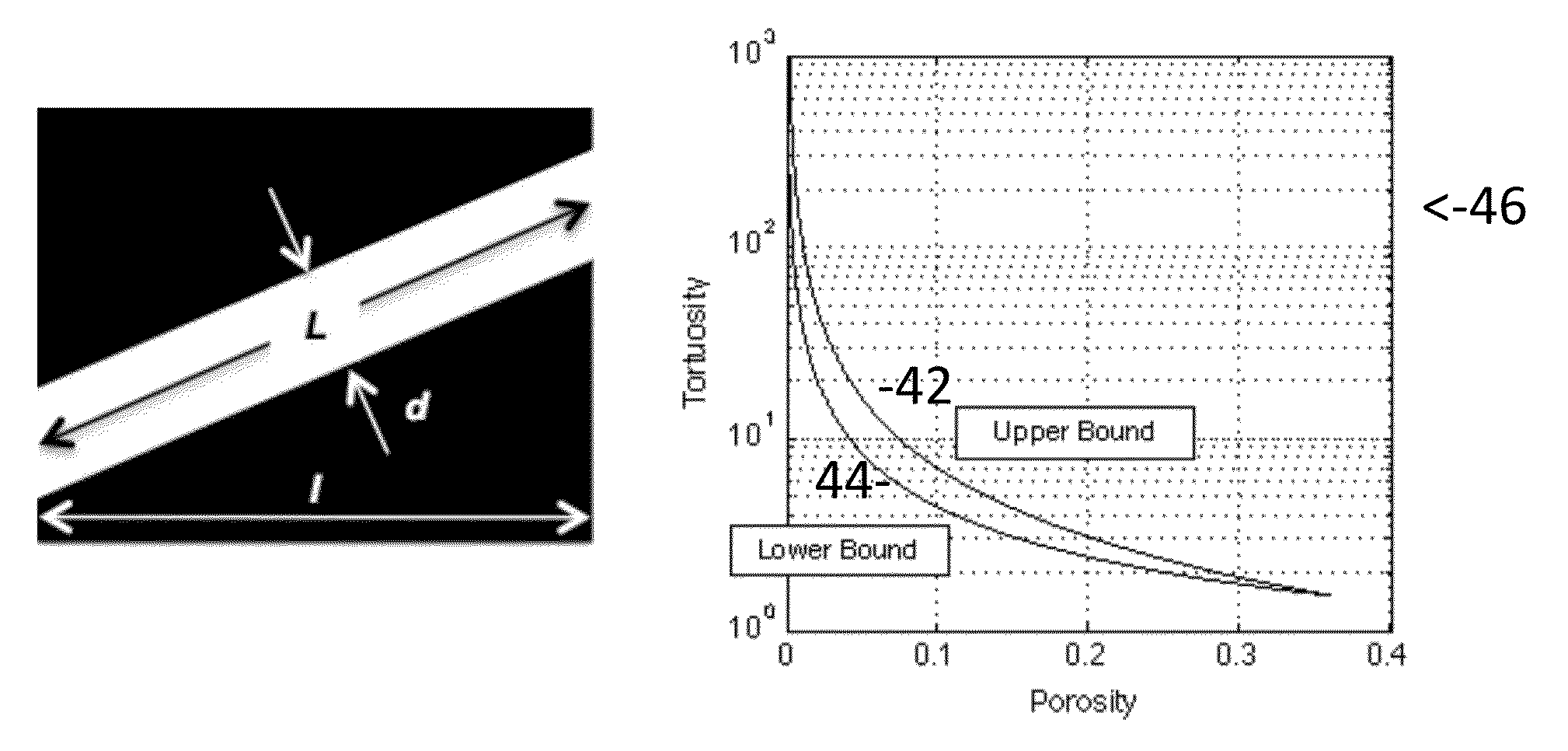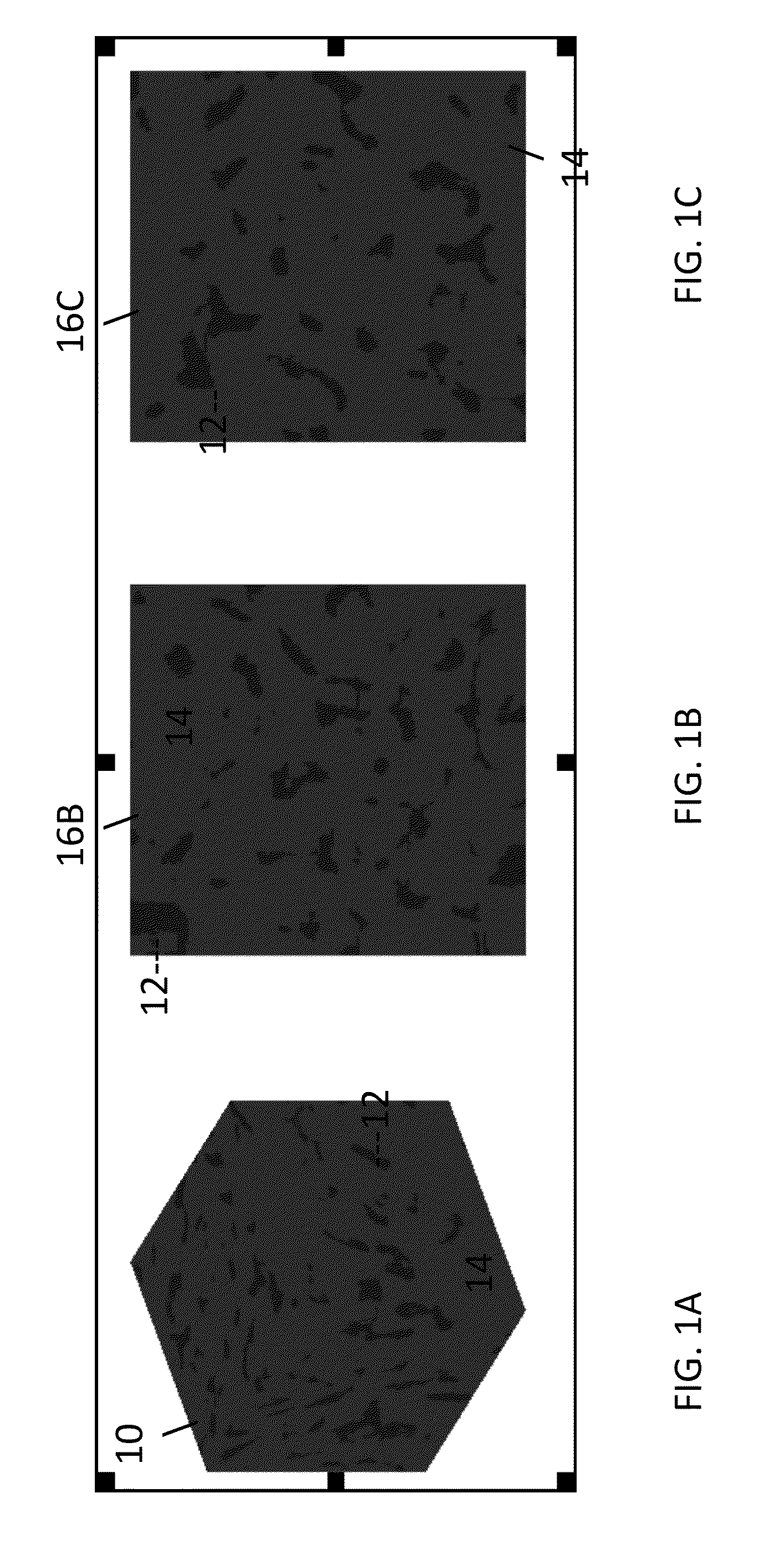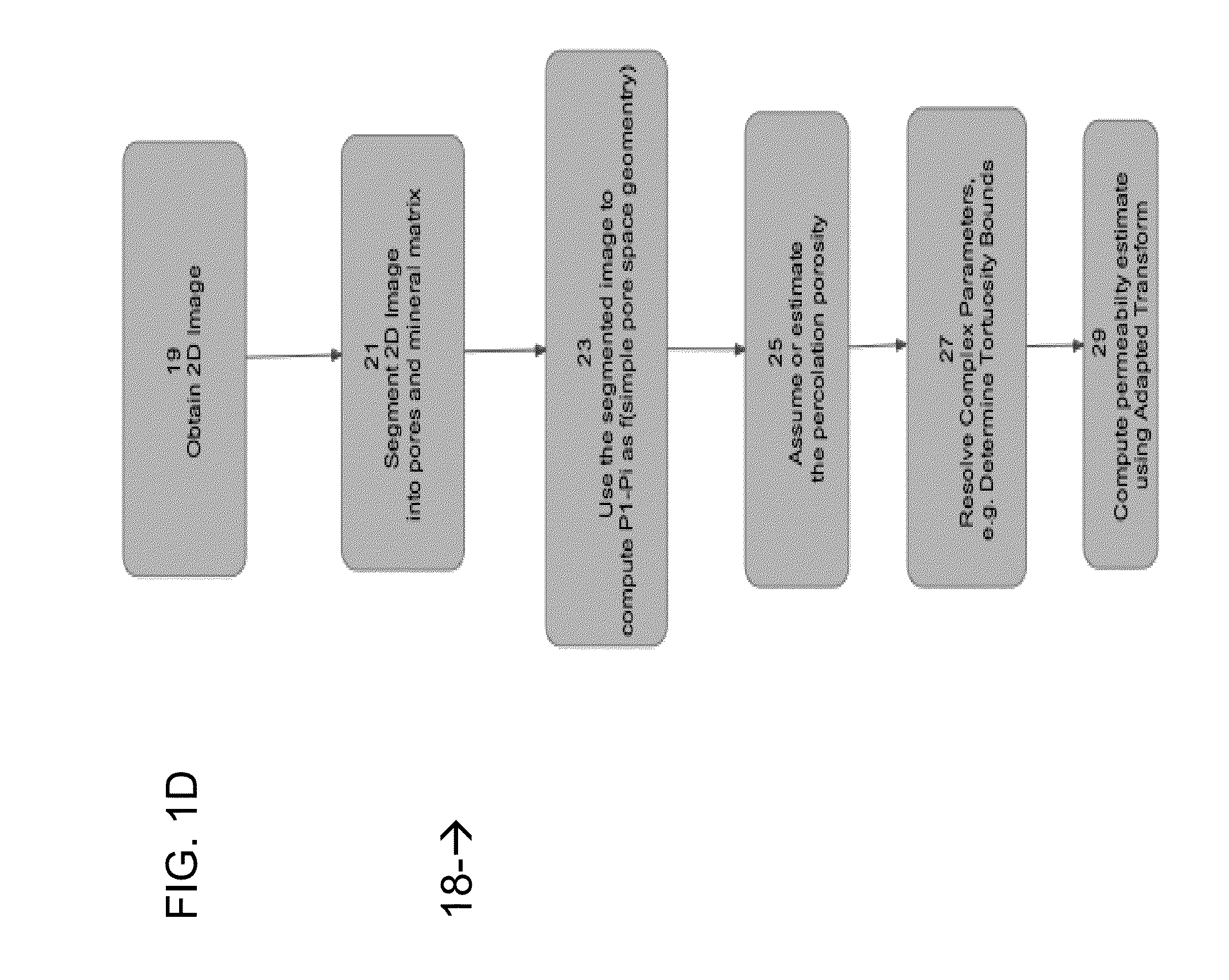Method and system for estimating rock properties from rock samples using digital rock physics imaging
a technology of rock physics and rock samples, applied in the field of digital rock physics, can solve the problems of not being able to efficiently characterize rock traversed, and not being able to provide quality information, etc., and achieve the effect of efficiently characterizing rock traversed
- Summary
- Abstract
- Description
- Claims
- Application Information
AI Technical Summary
Benefits of technology
Problems solved by technology
Method used
Image
Examples
Embodiment Construction
[0059]The present invention relates in part to methods and systems for estimating a target rock property values for rocks, such as absolute permeability, relative permeability, formation factor, elasticity, or capillary pressure values, and other porous media using unique digital rock physics techniques applied to 2D images. These methods and systems of the present invention can be suitable for application to small scale samples, such as cuttings returned to the surface in normal drilling operations and applications, where requirements for speed and volume may not be optimally met by 3D digital image volume analysis.
[0060]Absolute permeability, for example, is a transport property directly related to fluid flow through porous rock and digital rock physics offers a quality alternative for acquiring absolute permeability values without the expensive, time-consuming laboratory tests requiring an intact core or other suitably sized well shaped sample. However, having a 3D image of rock ...
PUM
| Property | Measurement | Unit |
|---|---|---|
| diameters | aaaaa | aaaaa |
| porosity | aaaaa | aaaaa |
| porosity | aaaaa | aaaaa |
Abstract
Description
Claims
Application Information
 Login to View More
Login to View More - R&D
- Intellectual Property
- Life Sciences
- Materials
- Tech Scout
- Unparalleled Data Quality
- Higher Quality Content
- 60% Fewer Hallucinations
Browse by: Latest US Patents, China's latest patents, Technical Efficacy Thesaurus, Application Domain, Technology Topic, Popular Technical Reports.
© 2025 PatSnap. All rights reserved.Legal|Privacy policy|Modern Slavery Act Transparency Statement|Sitemap|About US| Contact US: help@patsnap.com



